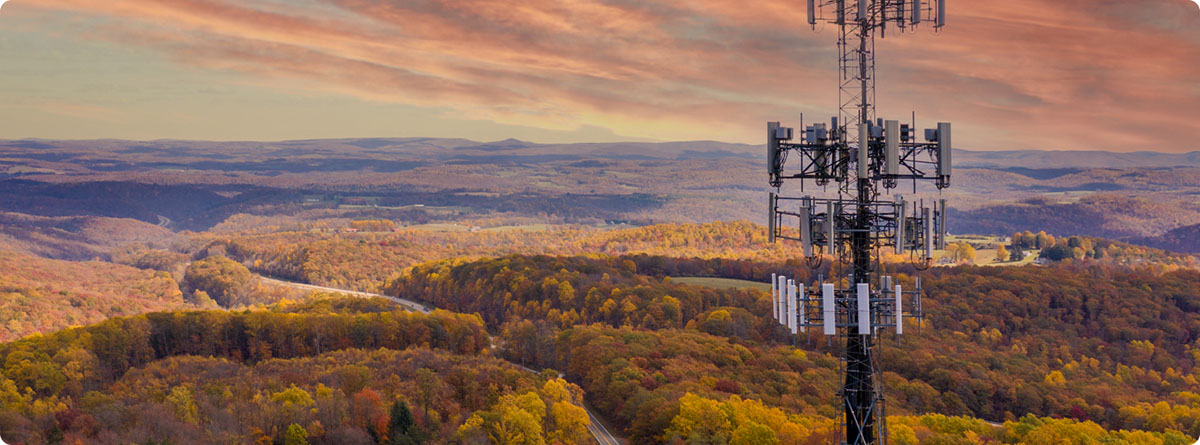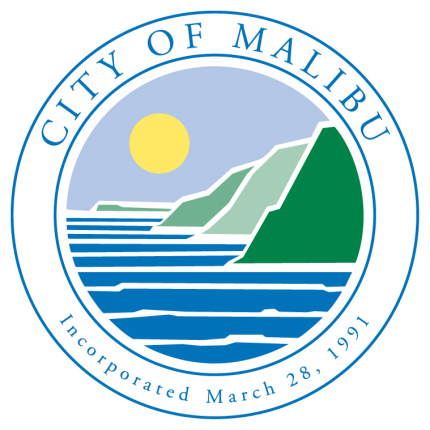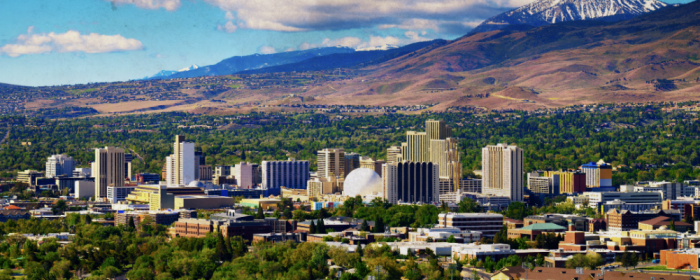A Guide to Government Forestry Jobs: How A Public Lands Management Gives Back

Government forest service careers span a wide range of responsibilities and expertise levels, offering something for nearly every interest within the field. Here are three of the most common and sought-after positions:
1. Forest Technician
- Entry-level position
- Tends to plants on public property, assists in basic management tasks
- Often involves physical outdoor work
2. Park Ranger
- Serves as a steward of public lands
- Enforces regulations, educates visitors, and manages recreational activities
- Often requires law enforcement training
3. Fish and Wildlife Technician
- Assists in managing and conserving fish and wildlife populations in forested areas
- Conducts field surveys, collects data, and monitors species health
- Often works closely with Forest Ecologists and other specialists
Each of these positions plays a crucial role in the management and preservation of our forest lands. As you consider your career path, think about which aspects of forestry most excite you. Do you thrive on fieldwork like soil conservation, or do you prefer analysis and policy development? Are you passionate about fire protection, or does urban forestry spark your interest?
By understanding the range of available positions, you can better tailor your education, experience, and job search to align with your career goals in government forestry. Whether you’re drawn to the adrenaline of firefighting or the precision of GIS mapping, there’s a role in government forestry where you can make a meaningful impact on our natural resources.
Educational Requirements and Certifications
Ready to cultivate your knowledge and credentials for a thriving career in government forestry? Let’s explore the educational pathways and certifications that can set you apart in this competitive field.
Educational Requirements
Bachelor’s DegreeMost government forestry jobs require at least a bachelor’s degree in forestry or a related field. Common majors include:
- Forestry
- Environmental Science
- Natural Resource Management
- Wildlife Biology
- Conservation Biology
- Forest ecology and management
- Silviculture
- Soil science
- Hydrology
- Geographic Information Systems (GIS)
- Wildlife management
- Environmental policy and law
Some specialized or higher-level positions may require a master’s degree or PhD. These are particularly valuable for research-oriented roles or senior management positions. Advanced degrees can focus on areas such as:
- Forest ecology
- Ecosystem management
- Environmental policy
- Conservation biology
While not always mandatory, certifications can significantly enhance your credentials and demonstrate your expertise to potential employers. Consider pursuing:
Certified Forester (CF)
- Offered by the Society of American Foresters
- Requires a combination of education and experience
- Demonstrates a broad knowledge of forestry principles and practices
Certified Arborist
- Offered by the International Society of Arboriculture
- Particularly valuable for urban forestry positions
ESRI Technical Certifications
- For GIS specialists or those working extensively with mapping software
- Demonstrates proficiency in using ArcGIS and other ESRI products
Project Management Professional (PMP)
- Useful for those managing large-scale forestry projects
- Demonstrates skills in planning, executing, and overseeing complex initiatives
The field of forestry is constantly evolving. Many agencies encourage or require ongoing professional development through workshops, seminars, and courses on topics like:
- Climate change adaptation
- Invasive species management
- Advanced GIS applications
- Fire ecology and management
While formal education and certifications are crucial, hands-on experience is equally valuable. Consider internships, volunteer work, or seasonal positions to complement your academic credentials and stand out in the competitive government forestry job market.
By combining a strong educational foundation with relevant certifications and practical experience, you’ll be well-positioned to launch a successful career in government forestry. Stay curious, keep learning, and let your passion for forest conservation guide your professional development journey.
Skills and Qualities Needed for Success

Beyond formal education, what personal attributes will help you thrive in a government forestry career? Let’s look at the mix of hard and soft skills that can set you apart in this dynamic field.
Successful government foresters possess a unique blend of technical knowledge, practical skills, and personal qualities. Here’s what you’ll need to excel:
Technical Skills
- Proficiency in Geographic Information Systems (GIS) and mapping software
- Understanding of forest management principles and practices
- Knowledge of relevant environmental laws and regulations
- Data analysis and interpretation skills
- Familiarity with remote sensing technologies
- Basic programming skills (e.g., R, Python) for data analysis
Field Skills
- Ability to navigate using maps and GPS
- Proficiency in using forestry tools (e.g., clinometers, increment borers)
- Plant and wildlife identification skills
- First aid and wilderness survival knowledge
- Experience with field data collection techniques
Physical Abilities
- Stamina for long days of fieldwork in various weather conditions
- Ability to carry heavy equipment over rough terrain
- Comfort working in remote areas
Analytical and Problem-Solving Skills
- Critical thinking to assess complex ecological systems
- Ability to analyze data and draw meaningful conclusions
- Creative problem-solving for unique environmental challenges
Communication Skills
- Strong written communication for reports and grant applications
- Verbal communication skills for presenting findings and educating the public
- Ability to explain technical concepts to non-experts
Interpersonal Skills
- Teamwork and collaboration abilities
- Cultural sensitivity when working with diverse communities
- Conflict resolution skills for managing stakeholder interests
Adaptability
- Flexibility to work in changing environmental and political landscapes
- Willingness to learn new technologies and methodologies
- Ability to shift between office work and field assignments
Attention to Detail
- Precision in data collection and analysis
- Careful observation of environmental changes
- Accuracy in following safety protocols and regulations
Project Management
- Ability to plan and execute long-term projects
- Time management and organizational skills
- Budget management experience
Environmental Passion
- Genuine interest in conservation and environmental stewardship
- Commitment to sustainable forest management practices
- Enthusiasm for outdoor work and nature
You can also hone your skills in the following ways:
- Seek internships or volunteer opportunities to gain practical experience.
- Join professional organizations like the Society of American Foresters.
- Attend workshops and conferences to stay updated on industry trends.
- Practice your communication skills through presentations or writing for forestry publications.
- Develop your leadership abilities through team projects or community initiatives.
In the ever-evolving field of forestry, one of the most valuable skills is the ability to continue learning throughout your career. Stay curious, embrace new challenges, and never stop growing your skillset.
By cultivating this diverse range of skills and qualities, you’ll be well-equipped to tackle the complex challenges of government forestry work. Whether you’re managing a controlled burn, analyzing satellite imagery, or collaborating with local communities, your broad skill set will enable you to make a meaningful impact in forest conservation and management.
Challenges and Rewards of Government Forestry Work

Like any career, government forestry has its ups and downs. Are you prepared to face the challenges and reap the incredible rewards of this vital field?
Challenges
1. Budget Constraints
- Limited funding can restrict projects and resources
- Need to be creative in maximizing impact with available funds
2. Bureaucracy
- Navigating complex government systems and regulations
- Potentially slower decision-making processes
3. Balancing Diverse Stakeholder Interests
- Mediating between environmental, economic, and recreational needs
- Addressing conflicts between different user groups
4. Political Influences
- Adapting to changing administrations and policy priorities
- Maintaining scientific integrity amid political pressures
5. Remote Work Locations
- Potential for assignments in isolated areas
- Limited access to urban amenities
6. Physical Demands
- Fieldwork can be physically challenging and sometimes dangerous
- Exposure to harsh weather conditions and natural hazards
7. Work-Life Balance
- Seasonal demands may require long hours during peak periods
- Emergency responses (e.g., wildfires) can disrupt personal plans
8. Emotional Challenges
- Witnessing environmental degradation or loss of forest resources
- Dealing with public criticism or resistance to management decisions
9. Technological Adaptation
- Keeping up with rapidly evolving forestry technologies and methods
- Integrating new tools into established practices
Rewards
1. Environmental Impact
- Direct contribution to forest conservation and sustainability
- Opportunity to shape the future of natural resources
2. Job Stability and Benefits
- Government positions often offer good job security
- Comprehensive benefits packages, including health insurance and retirement plans
3. Diverse and Engaging Work
- Variety of tasks and projects, from fieldwork to policy development
- Continuous learning opportunities in a dynamic field
4. Career Advancement
- Clear career paths within government agencies
- Opportunities for specialization and leadership roles
5. Work in Natural Settings
- Regular exposure to beautiful, often pristine environments
- Connection with nature as part of daily work
6. Professional Community
- Collaboration with passionate, like-minded professionals
- Participation in a global community of forest stewards
7. Public Service
- Satisfaction of serving the public and future generations
- Ability to educate others about forest conservation
8. Scientific Contribution
- Opportunities to participate in research and data collection
- Potential to contribute to scientific understanding of forest ecosystems
9. Tangible Results
- Visible outcomes of forest management and restoration efforts
- Long-term impact on landscape and wildlife populations
10. Work-Life Integration
- For outdoor enthusiasts, work aligns closely with personal interests
- Potential for unique experiences like living in national forests
While the challenges of government forestry work are real, many professionals find that the rewards far outweigh the difficulties. The opportunity to make a lasting impact on our natural world drives many to pursue and persist in this vital career.
Many of the challenges in government forestry work are also opportunities for growth and innovation. Budget constraints can spark creative solutions, while stakeholder conflicts can lead to more inclusive and sustainable management practices. Your ability to navigate these challenges will not only advance your career but also contribute to better forest management overall.
When you understand both the challenges and rewards of government forestry work, you can make an informed decision about your career path and prepare yourself for the realities of this important field. Whether you’re drawn to the beauty of nature, the complexity of ecosystem management, or the satisfaction of public service, a career in government forestry offers a unique opportunity to make a difference in the world.
Resources for Further Information

Your journey into government forestry doesn’t end here. Dive deeper into the field with these valuable resources that will help you stay informed, connected, and prepared for your forestry career.
Professional Organizations
The Society of American Foresters (SAF) is an excellent starting point for aspiring government foresters. With over 11,000 members, SAF offers networking opportunities, career resources, and access to the latest forestry research.
For those interested in urban forestry, the International Society of Arboriculture (ISA) provides specialized knowledge and certifications.
If you’re drawn to wildlife management aspects of forestry, consider exploring The Wildlife Society, which bridges the gap between forestry and wildlife conservation.
Government Agencies
The U.S. Forest Service is the largest employer of foresters in the country and offers a wealth of information on forest management practices. Their careers page is a must-bookmark for job seekers.
The Bureau of Land Management and National Park Service also offer unique perspectives on public land management and preservation, with career information available on their respective websites.
Educational Resources
To enhance your forestry knowledge, explore the USDA’s Forestry Education Resources. These free materials cover a range of topics. For more in-depth, research-based information, check out wildland fire statistics from the same organization.
Publications and Journals
Stay current with the latest research by regularly reading the Journal of Forestry and Forest Science, both available through Oxford Academic. These peer-reviewed publications offer cutting-edge insights into forestry science and management practices.
Online Learning Platforms
Platforms like Coursera and edX offer forestry and environmental science courses from top universities. These can be excellent ways to broaden your knowledge or specialize in specific areas of forestry.
Networking and Forums
Engage with fellow professionals through online communities like the Forestry Forum. LinkedIn also hosts several forestry-focused groups where you can network and discuss industry trends.
The field of forestry is constantly evolving. Regular engagement with these resources will keep you at the forefront of industry trends, scientific advancements, and career opportunities.
By leveraging these resources, you’ll be well-equipped to pursue and advance your career in government forestry. Whether you’re researching the latest forest management techniques, looking for job openings, or connecting with fellow professionals, these tools will support your journey in becoming a skilled and informed government forester.
Don’t hesitate to reach out directly to professionals in the field or contact government agencies for more specific information about employment opportunities and careers trajectories. Your proactive approach to learning and networking can open doors to exciting possibilities in government forestry.
Embarking on a career in government forestry is a commitment to the stewardship of our nation’s natural resources. Throughout this guide, we’ve explored the diverse roles, educational requirements, skills needed, and both the challenges and rewards that come with this career path. From the forests of the Pacific Northwest to the urban canopies of our biggest cities, government foresters play a crucial role in shaping the future of our environment.
































